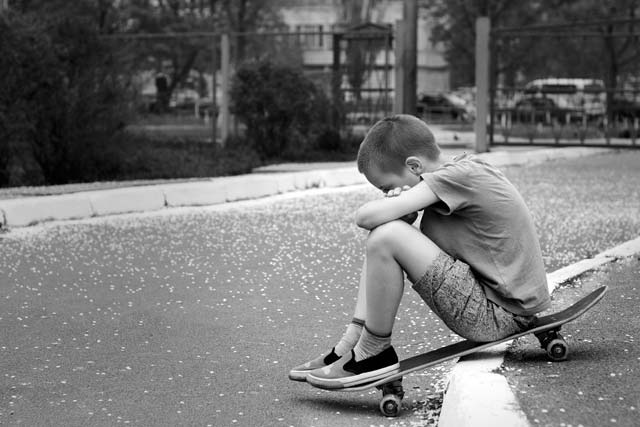
Loneliness hurts. The more lonely feelings a person reports, the less quality sleep they get, the more at risk they are at being diagnosed with depression, anxiety or cardiovascular disease, and the more difficult concentration and learning becomes.
Loneliness is an uncomfortable state of being. It starts with a sad feeling and leads to thoughts of isolation, unworthiness and even failure. It often makes us feel hopeless and irritated. It is highly subjective, meaning one person can be more prone to feeling lonely than another who experiences the same situation.
Loneliness can be felt by people of all ages. Here are some of the reasons and factors that may increase loneliness:
• ALIENATION from family: having many conflicts or feeling unsupported or not close with immediate family members (your parents, siblings, spouse, children)
• BEREAVEMENT: death of loved ones
• BULLYING: being socially rejected or teased
• MEDIA: More time on social media often leads to feelings of loneliness. Also, media use is stimulating. Too much and we may build less of a tolerance for solitary activities than in the past. We unrealistically compare ourselves to others (too many inputs, lack of tolerance for solitary reflection, activities, unrealistic social comparison)
• CHANGE OF LIFE: Retirement, losing a spouse/child/parent, relocating, having a child/caring for young children
• STRESS: If we are too busying working, we may have less time and energy for creating friendships and connections. If we are consumed by worries about our finances, our health or possible future problems, we may feel more lonely.
• RELATIONSHIP PROBLEMS: We can also feel lonely if we have been arguing or having a lot of conflict in our most important relationships (best friend, romantic partner, children, parents).
Loneliness can just sneak up on us. For example, all developing children will get lonely from time to time. Parents and children should talk about how normal it is to feel lonely. No matter what a person looks like on the outside (e.g., number of friends, or siblings, or popularity), he or she can likely feel as if there’s no one to play with, or there’s no one who understands him or her.
Sometimes just playing in a room by yourself or having a friend go away on a summer or spring break vacation can make a child feel lonely.
Teenagers are more prone to feeling lonely than younger children. Despite the fact that teens are the most connected age group (e.g., more than 70 percent of teens report texting everyday), they often perceive themselves to be on the “outside” more than others who are younger or older than them. Intense social pressure to “fit in” and being overly sensitive to any sign of rejection, teens are at risk for feeling lonely and therefore “worthless.” Teens who are often lonely are more at risk for depression than teens who are not. Lonely teens can come across as insensitive or lack insight. Lonely teenagers may not accurately read or respond to emotional and social cues and can often be perceived as being rude, overly sarcastic or fake.
Being lonely can demotivate a teen; they often act less productive when they feel disconnected.
Making friends isn’t as easy as we assume it is. Many adults lack peers with whom they feel like they connect. It takes vulnerability, time and energy, three things that run low in our stressed out adult routines, to initiate quality time with others. In addition, we discover that people we first assume will make good friends often aren’t a good fit. It’s easy to relocate or start to PCS and not want to put forth the energy to maintain peer relationships.
Yet, without these connections, our health is compromised. Peer relationships decrease marital conflicts, increase our ability to laugh and be optimistic, and assist us in times of trouble.
Here are some suggestions to fight loneliness:
For children: The more practice children get at “alone” time, the less likely they may feel the “bad” type of lonely. Help your children practice by scheduling alone time for play in his/her room (without a TV/screen/computer) at least 30 to 60 minutes a week.
For Teens: Watch social media use. Lonely people often spend more time on social media than others. Don’t let an online social life fool you or your teen: this is no replacement for good old-fashioned face-to-face conversations and friendships, despite what teens say.
If a teen is retreating more and more into an online social world, this may be a sign of social problems. Ask your teen, “How can you spend more time with friends in the real world?” Limit social media and force your teen to deal with people face-to-face.
For Adults: Start a habit of hosting get togethers. Pick a TV show to watch together, plan a monthly brunch with a group of pals, or a monthly activity (bike rides, motorcycle outing, USO
trip).
These social “dates” are the best and easiest ways to develop authentic friendships.


